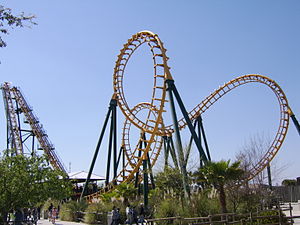Slow Down, Stop Reacting

How many of us are superior reactors? We are angry when there is too much traffic. We cry when our spouse is upset. We yell when the kids are fighting. We shout to be heard over everyone else. We are happy when we get our way. We are frustrated when we don’t.
Does it feel like life is a roller coaster ride? Do you want to get off but feel like the you are on an endless track that is never going to return to the station to stop and let you off? That is the way reacting feels. Ups and downs. Highs and lows. Never knowing how others are going to make us feel and feeling like it is out of our control. But what is the alternative to this? How can someone stop the ride? The first step is to detach from the situations and people who you feel are causing you to react.
Here is a summary of some tips from Melody Beatte in her book Codependent No More:
1. Learn to recognize when you’re reacting, when you are allowing someone or something to yank your strings. Usually when you start to feel anxious, afraid, indignant, outraged, rejected, sorry for yourself, ashamed, worried, or confused, something in your environment has snagged you. It’s not wrong to feel this way, the difference is, learning that you can decide how long you want to feel that way, and what you want to do about it. If you are using the words, “he/she/it made me feel” often that indicated you are reacting. Losing your sense of serenity is probably the strongest indication that you are caught up in some sort of reaction.
2. Make yourself comfortable. When you recognize that you’re in the midst of a chaotic reaction, say or do as little as possible until you can restore your own level of peace and serenity. Take time for yourself to rejuvenate. Take a hot shower. Walk away. Relax. Make a hot tea. Go for a run. Find a way to emotionally, mentally, and (if necessary) physically separate yourself from whatever you are reacting to. Find a way to ease your anxiety, something that is safe and positive for you (not a drink or a fast ride in your car!).
3. Examine what happened. If it is a minor incident, you may be able to sort through it yourself. It the problem is serious, or is seriously upsetting you, you may want to discuss it with a friend to help you clear your thoughts and emotions. Write down what it is you are feeling. Feelings go wild when they are caged up inside. Take responsibility for your own feeling. Nobody made you feel. Someone might have helped you feel a particular way, but you did your feeling all by yourself. Deal with it. Ask yourself some questions such as: Was I trying to control someone or some event? How serious is the problem? Am I taking responsibility for someone else? Am I upset because someone didn’t guess what I wanted or what I was really trying to say? Am I taking someone’s behavior too personally? Is this truly the end of the world, or is it merely sad or disappointing?
4. Figure out what you need to do to take care of yourself. Make a decision based on reality, and make them from a peaceful state. Do you need to apologize? Do you need to let it go? Do you need to make a decision to take care of yourself better? How could you do that?
Remember you are not responsible for making other people ‘see the light,’ and you don’t need to ‘set them straight.’ You are responsible for helping you. If you don’t have a peaceful answer about a decision, let it go. It is not time to make it yet. And remember SLOW DOWN. There is nothing that can be accomplished when you are angry and upset that can’t be accomplished more productively in a peaceful, calm and reasonable state of mind.


